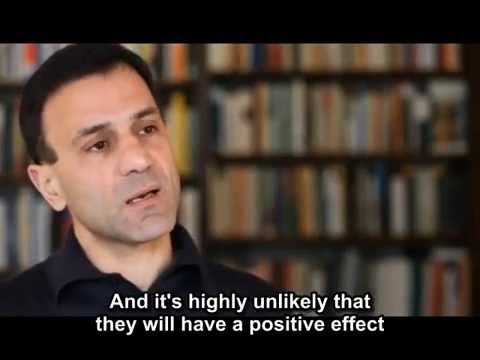In an era marked by economic turbulence and shifting financial landscapes, the documentary “Debtocracy” emerges as a timely and insightful exploration of the Greek debt crisis. This thought-provoking film embarks on a quest to unearth the root causes behind Greece’s financial turmoil while presenting alternative solutions that have often been sidelined by both the government and mainstream media. By drawing parallels with countries like Ecuador and their Debt Audit Commissions, “Debtocracy” paints a nuanced picture of the crisis and the potential pathways towards recovery.
The Greek debt crisis of the early 21st century left a profound impact on the nation’s economy, politics, and society. “Debtocracy” courageously confronts this multifaceted issue, peeling back the layers to reveal the intricate web of factors that contributed to the crisis. It does so by going beyond the headlines and diving into the less explored corners of the financial landscape.
At its core, the documentary seeks to answer a fundamental question: How did Greece find itself in the throes of such a crippling debt crisis? As it unravels this complex narrative, “Debtocracy” unveils a series of economic, political, and social factors that converged to create the perfect storm. The film examines the role of domestic policies, international financial institutions, and global economic dynamics in shaping Greece’s financial destiny.
One of the documentary’s most compelling aspects is its exploration of alternative solutions. As it journeys through Greece’s tumultuous economic landscape, it highlights solutions that have often been marginalized or ignored by mainstream discourse. This includes a close examination of countries like Ecuador, which implemented Debt Audit Commissions to assess their own financial predicaments. “Debtocracy” deftly tracks this process and draws valuable lessons that hold relevance for Greece and other nations grappling with debt-related challenges.
The film’s presentation is a testament to its commitment to shedding light on this complex issue. Through a skillful blend of interviews, archival footage, and expert analysis, “Debtocracy” crafts a narrative that is both informative and thought-provoking. The documentary engages viewers on an intellectual journey, prompting them to question preconceived notions and explore alternative perspectives.
“Debtocracy” is not just a historical account of Greece’s financial turmoil; it is a call to action. It urges viewers to reevaluate the role of debt in contemporary society and to challenge the prevailing narratives that often prioritize financial interests over the well-being of citizens. It invites us to consider the potential benefits of transparency, accountability, and alternative economic approaches.
As the documentary unfolds, it becomes evident that the lessons learned from Greece’s struggles are not confined to its borders. The issues raised in “Debtocracy” resonate with nations across the globe, where debt crises and economic challenges continue to shape the destinies of millions. By drawing inspiration from the experiences of other countries and their efforts to confront debt-related issues, “Debtocracy” offers a glimmer of hope and a roadmap for change.
In conclusion, “Debtocracy” is a documentary that transcends the confines of a singular crisis to address broader questions about economics, governance, and societal well-being. It is an illuminating exploration of Greece’s debt crisis and the alternative solutions that lie on the periphery of mainstream discourse. For those seeking a deeper understanding of the economic complexities that shape our world, “Debtocracy” is a must-watch. It serves as a reminder that in the face of adversity, there is always room for critical examination, innovation, and the pursuit of a better future.

